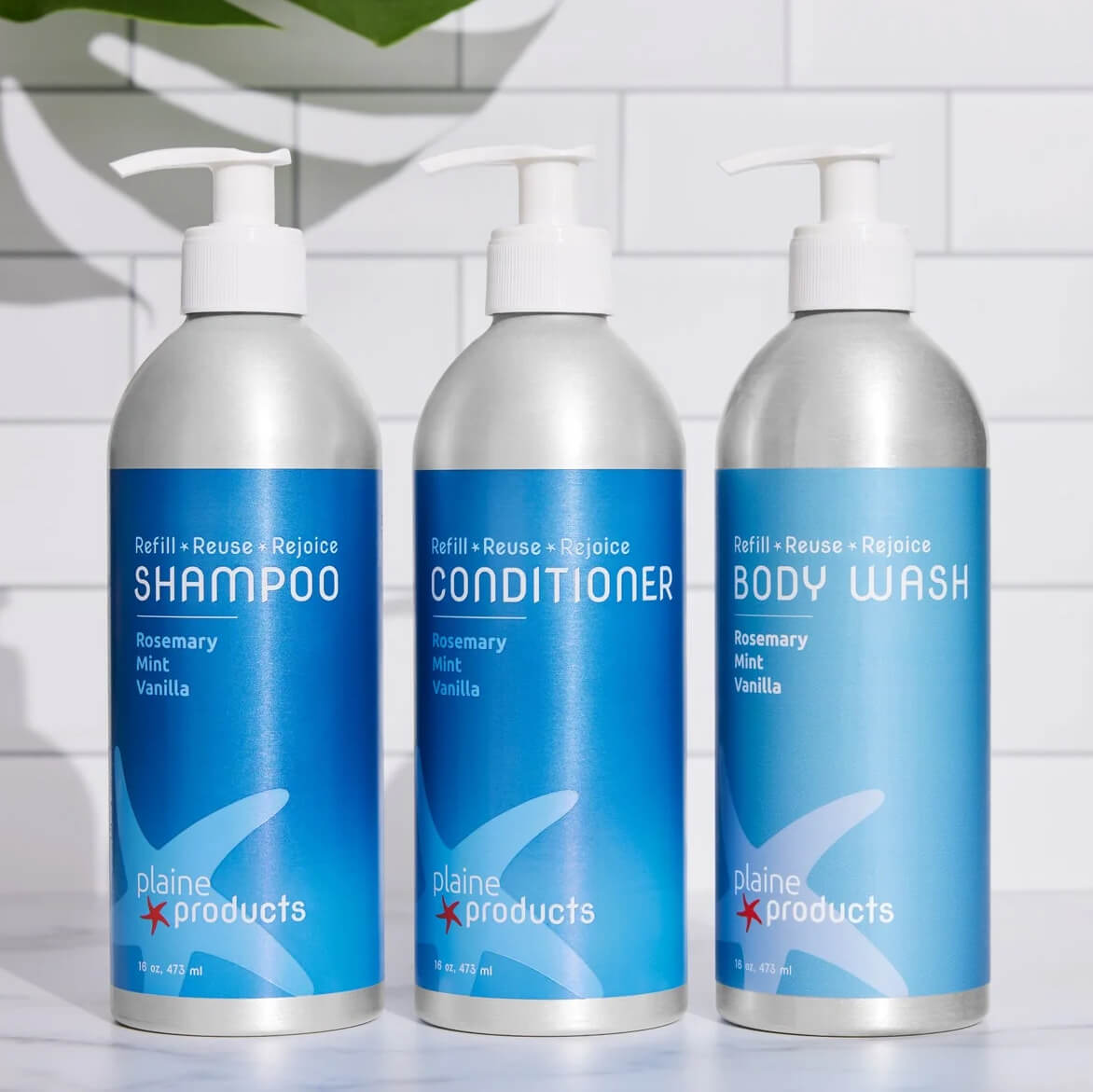Here are five things you don’t want in your conditioner:
Silicone
Common Ingredient Names: cyclomethicone, dimethicone, methicone, amodimethicone, dimethiconol, cyclomethicone/cyclopentasiloxane Silicones are synthetic polymers that help your hair repel water, making them an effective tool for taming frizz, locking in moisture, and adding shine. While they don’t pose a health threat, they can build up in your hair, which makes it difficult to get real moisture into your hair. This can lead to brittle hair with a lot of frizz – making it especially bad for curly hair.Parabens
Common Ingredient Names: methylparaben, propylparaben, butylparaben Parabens are chemicals that are used as preservatives in hair products, primarily for their antibacterial and anti-fungal properties. Parabens can irritate the skin, causing things like dermatitis, rosacea, and other allergic reactions. They can also cause dry, dull, brittle hair because they can tear apart the cuticle covering the hair shaft. There’s even research that links parabens to hormonal differences in young girls. The good thing? You don’t need a product with parabens unless you want your shampoo to last for years. And with so many paraben-free products on the market, it’s easy to leave parabens in the past.Sulfates
Common ingredient names: sodium lauryl sulfate (SLS) or sodium laureth sulfate (SLES) A sulfate is a salt created when sulfuric acid reacts with another chemical. The main use for these salts is to help your product lather up, so you’re less likely to find these in your conditioners. However, always check your ingredient list just in case! Sulfates can be tough on your hair and can irritate your eyes and skin. SLS is also hazardous to any aquatic life that it may meet after it washes down your drain. SLES has been linked not only to cancer but also liver damage, so make sure to avoid these in the future.Isopropyl alcohol
Isopropyl alcohol is used in conditioners primarily for its drying effect and its ability to absorb other substances into the hair follicles. It’s an alcohol that evaporates quickly and is used in everything from hairsprays to cosmetics…but it shouldn’t be. Isopropyl alcohol ends up leaving your hair dry and frizzy and can lead to negative health consequences like irritation and damage to the nervous, heart, and respiratory system.Triclosan
Triclosan is a synthetic microbial that’s added to hair care products to reduce or prevent bacteria growth. It can disrupt your endocrine system and it’s linked to an increased risk of breast cancer. It was originally made for hospitals, but it’s gotten into a ton of products like shampoo, conditioner, soaps, body washes, toothpastes, kitchenware, toys, and even furniture and mattresses. It’s classified as a skin and eye irritant and it is toxic to aquatic life. It’s also one of the main things that’s led to the rise of “superbugs” – viruses and bacteria that are now resistant to standard antimicrobials and antibacterials. The good news: The United States FDA has banned the use of triclosan and other antibacterials as of 2017 but not all consumer products have taken them out of their ingredients list yet. Or you could just buy your conditioner from Plaine Products since our products only contain natural ingredients. Simple as that! Plaine Products Ingredients Here at Plaine Products, we are committed to the health and safety of our customers AND the planet. Our products are toxin-free, biodegradable, cruelty-free, and always all-natural. No need to worry about avoiding the above toxins, because we’ve done that work for you! Shop our line of plastic-free and toxin-free haircare here.
Plaine Products Ingredients Here at Plaine Products, we are committed to the health and safety of our customers AND the planet. Our products are toxin-free, biodegradable, cruelty-free, and always all-natural. No need to worry about avoiding the above toxins, because we’ve done that work for you! Shop our line of plastic-free and toxin-free haircare here. 





 DO YOU NEED A RETURN LABEL?
DO YOU NEED A RETURN LABEL?